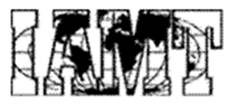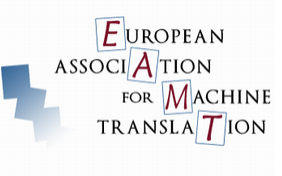|

ACCEPT - Automated Community Content Editing PorTal.
Vision: Help communities share knowledge more effectively across the language barrier.
The ACCEPT project is part of the seventh European framework programme and works on enabling machine translation for the emerging community content paradigm, allowing citizens across the EU better access to communities in both commercial and non-profit environments. There are five countries participating in the project: Switzerland, United Kingdom, Germany, Ireland, and France.
The project brings together two of the world's leading research centres in applied MT (Universities of Edinburgh and Geneva), as well as the leading provider of content editing technologies (Acrolinx). In addition, there are two extremely experienced machine-translation users in the project: the software company Symantec and the language services provider Lexcelera. Symantec and Lexcelera also bring their community forum experience: Symantec through its user forums and Lexcelera through Traducteurs sans Frontieres, a non-profit organisation supported by Lexcelera which provides pro bono humanitarian translations via a community of translators.
To achieve its overall objective of improving the translation of community content, the ACCEPT project is developing innovative technology and user experiences for this challenging type of content. The main focus is on improving the quality of the content to make it more translatable; improving machine translation engines, particularly statistical machine translation (SMT) engines to better handle unconventional input; and enabling target language speakers to post-edit without knowledge of the source language.
Half-way into its 36-month research program, the ACCEPT project is able to announce its significant results in several development areas:
- a pre-editing plug-in for forum users, powered by Acrolinx language checking functionality and designed to encourage users to address the most critical quality issues, in a minimally intrusive way;
- pre-editing strategies for SMT, which consist of investigating the typical issues that arise, evaluating which issues can be corrected fully automatically without user interaction, and learning corrections or rewording from training corpora;
- innovative developments around the SMT engine MOSES, including domain adaptation through selection and weighting of the training data, encoding of corrections suggested by the Acrolinx system into a weighted lattice which serves as input to the SMT system, feeding user post-edits back into the parallel corpus in almost real time, making recently translated material available for phrase extraction for the MT engine immediately without the need to re-build the entire system;
- a post-editing environment which is extensively used by Traducteurs sans Frontieres volunteers to revise automatically translated medical content;
- evaluation APIs providing a flexible framework to collect user feedback from online content repositories such as user forums.
The ACCEPT technology is integrated into the ACCEPT portal, available on a cloud computing infrastructure at www.accept-portal.eu.
The ACCEPT project is coordinated by the University of Geneva.
Contact:
Pierrette Bouillon
Violeta Seretan
40 bd. du Pont-d'Arve, CH-1211 Geneva, Switzerland
accept@unige.ch
Back to MT Summit webpage
|

